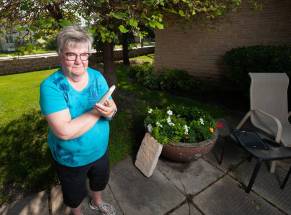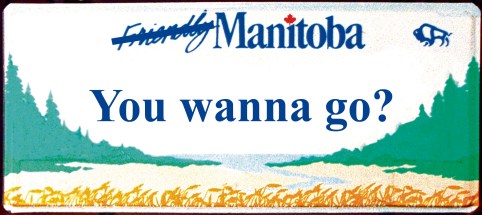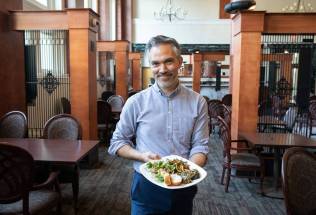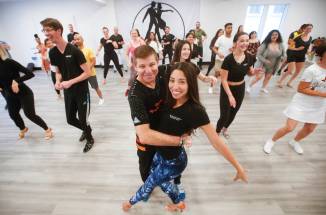Rhythm of the night Taking Salsa Sundays to True North Square proves popular
Read this article for free:
or
Already have an account? Log in here »
To continue reading, please subscribe:
Monthly Digital Subscription
$0 for the first 4 weeks*
- Enjoy unlimited reading on winnipegfreepress.com
- Read the E-Edition, our digital replica newspaper
- Access News Break, our award-winning app
- Play interactive puzzles
*No charge for 4 weeks then price increases to the regular rate of $19.00 plus GST every four weeks. Offer available to new and qualified returning subscribers only. Cancel any time.
Monthly Digital Subscription
$4.75/week*
- Enjoy unlimited reading on winnipegfreepress.com
- Read the E-Edition, our digital replica newspaper
- Access News Break, our award-winning app
- Play interactive puzzles
*Billed as $19 plus GST every four weeks. Cancel any time.
To continue reading, please subscribe:
Add Free Press access to your Brandon Sun subscription for only an additional
$1 for the first 4 weeks*
*Your next subscription payment will increase by $1.00 and you will be charged $16.99 plus GST for four weeks. After four weeks, your payment will increase to $23.99 plus GST every four weeks.
Read unlimited articles for free today:
or
Already have an account? Log in here »
Hey there, time traveller!
This article was published 26/08/2022 (1201 days ago), so information in it may no longer be current.
Bill it and they will come.
During July and August from 2005 to 2019, Leo Lopez was the ebullient host of Salsa Sundays, a free-to-the-public affair that invited one and all to try their hand, err… feet at Latin-style dancing under the canopy at The Forks.
The hugely popular event was shelved the last two years, owing to COVID-19, but was finally set to return July 3. Only instead of The Forks, Lopez and his entourage would now be cutting a rug at the plaza at True North Square, 251 Graham Ave.
Packed dance floors at The Forks, where thousands of people gather on a daily basis during the summer months, were pretty much guaranteed, says Lopez, whose dance studio Salsa Explosion, which he runs with his daughter Ana Karen Lopez, celebrated its 20th anniversary in the spring. But would that continue to be the case at True North Square, a section of the city generally lacking in foot traffic come the weekend, he wondered? Was Salsa Sundays a big enough draw on its own to justify the change in locale?
JOHN WOODS / WINNIPEG FREE PRESS Students participate in a salsa class at Salsa Explosion Dance Company in the Exchange District.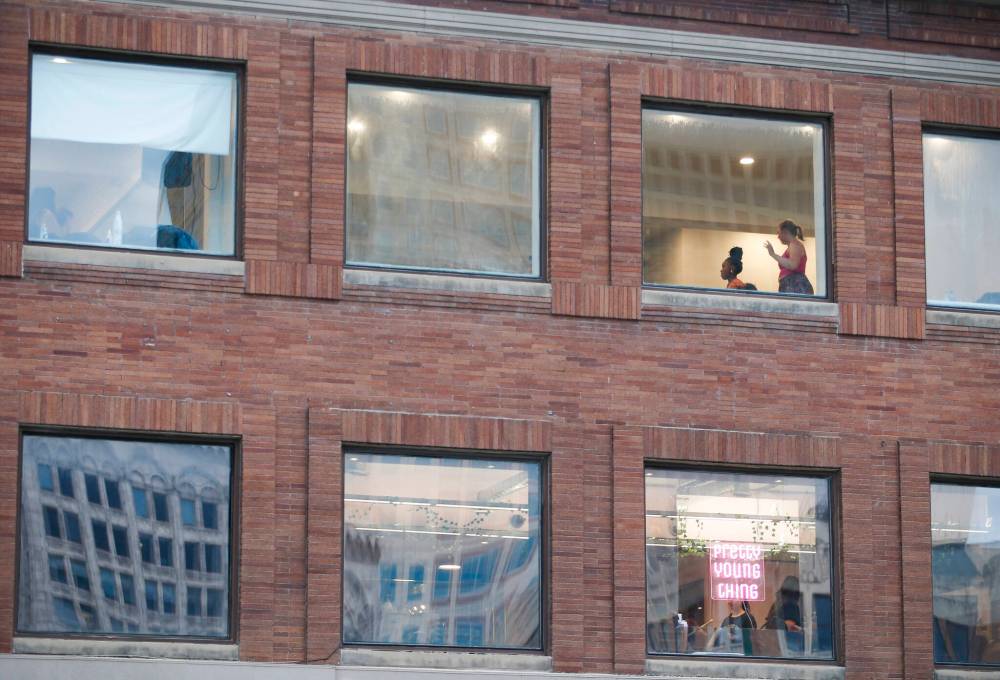
“He was so worried that first Sunday at True North, thinking it would just be the two of us,” says Ana Karen, seated next to her dad in their 3,500-square-foot, Exchange District studio at 388 Donald St., a space they took possession of around this time last year. “Then one couple arrived, followed by a group of five or six, followed by a family. By 6:30 or so, the dance floor was jam-packed, same as it had always been.”
“I remember thinking when the pandemic hit that it was all over for us, since we weren’t allowed to teach or do much of anything for the better part of a year,” pipes in Leo, who will co-host the final event of the season Sunday evening from 5 p.m. to 9 p.m.
“But now when I see all these people recording themselves with their phones, and sharing the fun they’re having with their — what is the word? Followers? — I know not only are we still around, we’re stronger than ever.”
Leo, who lists his age as “whatever you believe me to be,” grew up in Mexico City. His mother was a talented dancer, and the moment he was allowed to, he was joining her at Salón Los Angeles, a fashionable dance hall that opened in the Mexican capital in 1937.
He grew up in a tough part of town, and his father implored him to leave if the chance ever arose. The eldest of four siblings heeded his dad’s advice in 1997 by booking a flight to Chicago, to live with an aunt. He was strolling through his new neighbourhood one afternoon when he spotted a poster reading “Salsa Night.” He wasn’t familiar with salsa, a partner dance largely developed in the late 1960s by Puerto Ricans living in New York City. Asking himself, “how tough can it be?” he showed up at the listed address later that week to give it a whirl.
Let us guess: he took to salsa like a duck to water, and amazed everybody there with his fancy footwork, right? Wrong.
JOHN WOODS / WINNIPEG FREE PRESS Leo Lopez and his daughter Ana Karen Lopez instruct a salsa class in their downtown studio.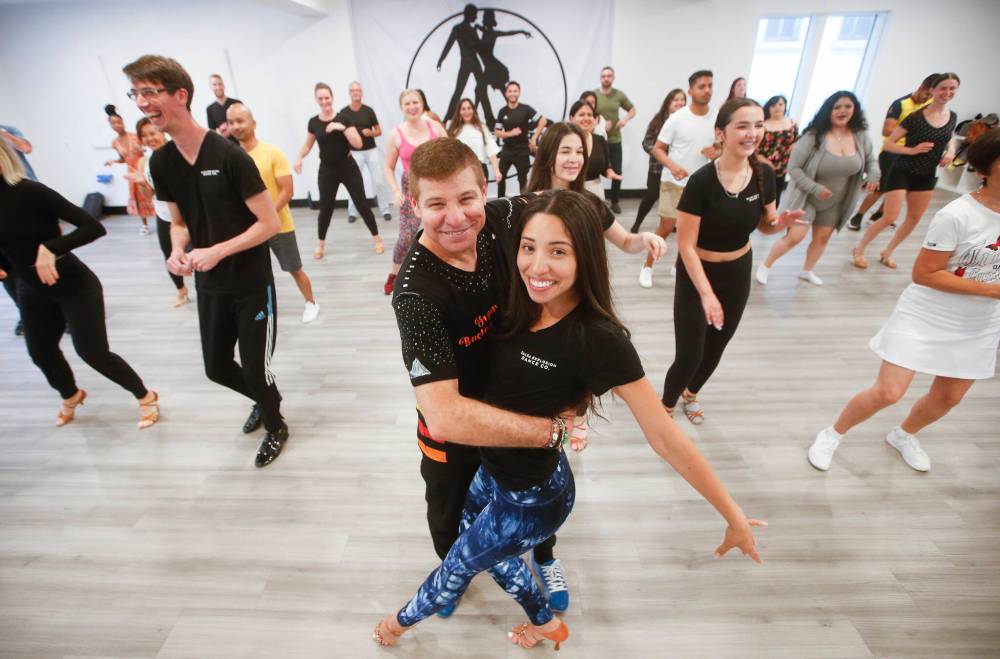
At some point, he invited a woman to dance. She agreed, but 30 seconds into the number, she stopped shaking her hips to ask what he was doing, exactly. The next thing he knew, he was alone on the dance floor, watching her return to her group of friends.
Practice makes perfect, he thought, so he spent the next six months dancing along to CDs at his aunt’s place, in front of a mirror. By the end of the year, he was winning competitions across the Windy City and offering private lessons, to boot.
In 1999, Lopez, already a father of one (Ana Karen was born in Mexico City in 1994), entered into a relationship with a Winnipegger who was living and working in Chicago. Told she was from Canada, his immediate response was, “Ah, Toronto.”
Nope. “Montreal?” Try again. “Vancouver?”
“I’d never heard of Winnipeg before and I’m not going to lie, the first time I visited, my thinking was, ‘Omigod, there’s nothing to do, this place is so boring,’” he says, noting the two — she’s now his ex-wife — welcomed a son into the world, shortly after moving here in 2000.
JOHN WOODS / WINNIPEG FREE PRESS Leo Lopez has been teaching salsa for 20 years in Winnipeg since moving from Mexico via Chicago.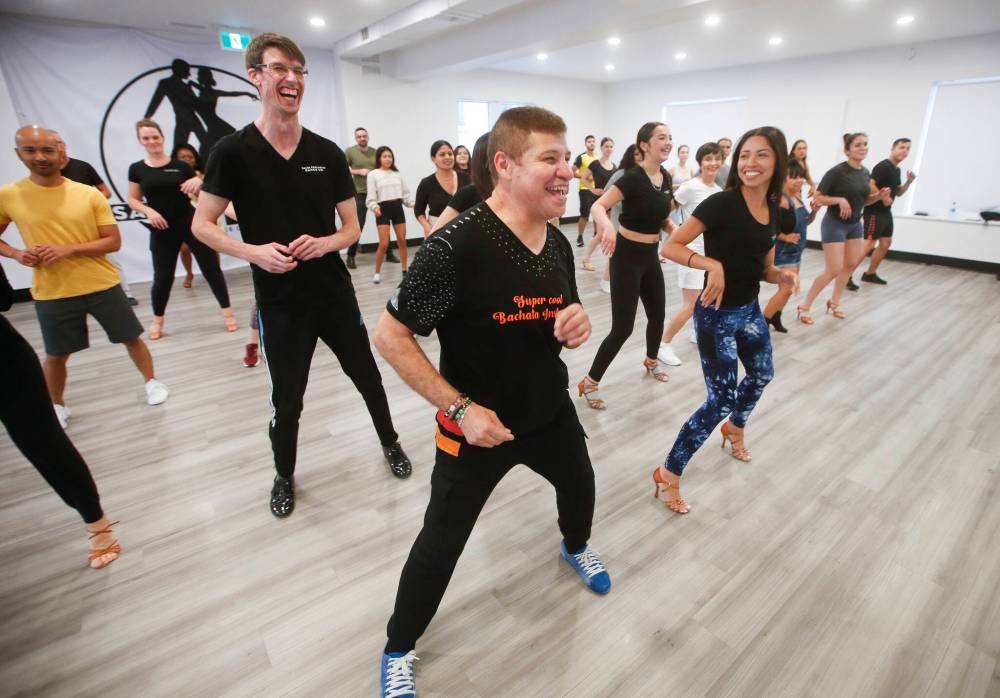
Lopez founded Salsa Explosion Dance Co. in 2002, out of an Island Lakes facility owned by his then-wife’s sister. Salsa wasn’t much of a thing in Winnipeg at the time — most bars’ so-called Latino nights consisted of DJs blasting Macarena on the hour, every hour — so he set about to change that by offering free, open houses to interested parties. He shakes his head about those early days. He would spend hours slicing cheese and veggies, and arranging everything to look just so, then be lucky to get one person poking their head through the door.
That eventually changed, thanks in part, to the owner of a popular Main Street nightclub, who, in 2004, began allowing Lopez to use the bottom level of his three-floor operation to run a Salsa night every Friday. The space he was afforded was directly adjacent to the club’s coat check area. Before long, patrons dropping off their jackets were craning their neck to see what was going on “over there.” Full houses were soon the norm which, in turn, led to scores of Winnipeggers signing up for lessons.
In 2005, Lopez had an idea. One of his favourite things about Chicago had been Salsa By the Lake, a come-one, come-all affair that was held near the shore of Lake Michigan. He wanted to do something similar here, but where to go? Somebody suggested The Forks. One Sunday he did just that, by arriving with a portable stereo, microphone and pair of dance shoes. One problem: he didn’t know he needed a permit, and was promptly shut down.
Shortly thereafter, he was invited to explain his vision to The Forks management. Before you could say La Vida Loca, Salsa Sundays had joined Rainbow Stage, Splash Dash river tours and ice cream at Bridge Drive-In as summer must-do’s in Manitoba’s capital.
JOHN WOODS / WINNIPEG FREE PRESS Ana Karen Lopez, who won the 2015 World Salsa Summit Championship, leads a class.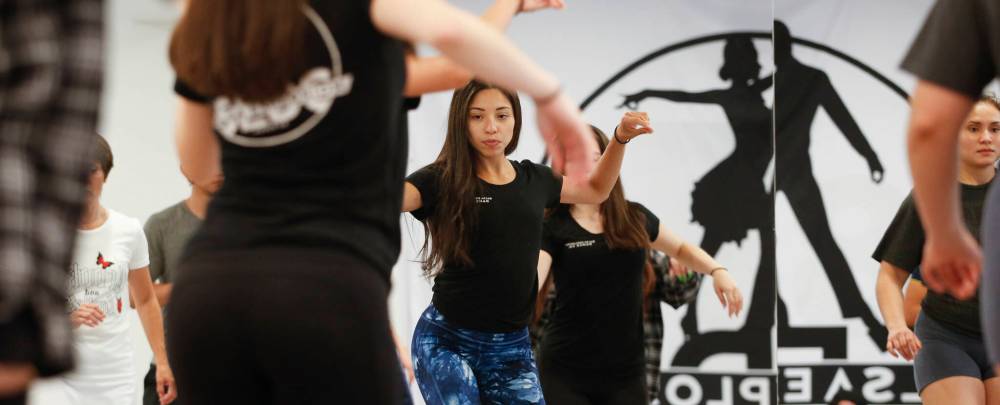
Ana Karen joined her father in Winnipeg at age seven. He signed her up for lessons at Marquis Dance Academy and, later, the Royal Winnipeg Ballet’s professional school.
In 2012, by which time her father was running Salsa Explosion out of a dance studio located in the Tuxedo Shopping Centre, she was an accomplished salsero, too, and was regularly assisting him at The Forks, for Salsa Sundays. One night, during a lull in the proceedings, she plucked four youngsters out of the audience at random and instructed them to follow her lead.
Ten years later, Salsa Explosion’s Salsa Kids program is the largest class of its kind in the country, and Ana Karen, who placed first at the 2015 World Salsa Summit Championship in Miami, is regularly invited to perform with her students at competitions all over Canada.
JOHN WOODS / WINNIPEG FREE PRESS Grizzly waits for a salsa class to end. 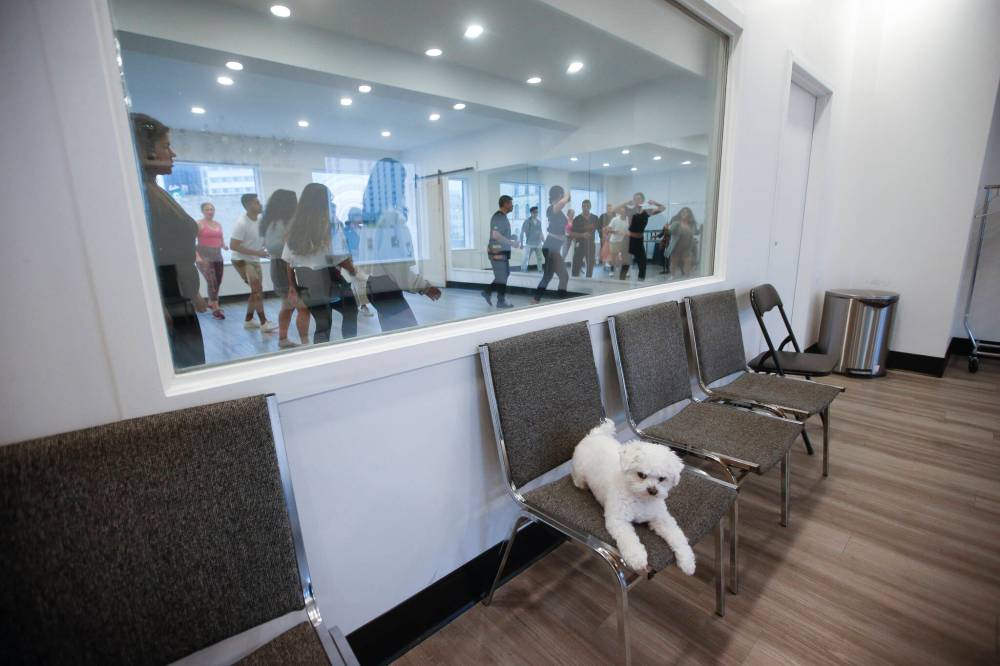
Like he mentioned earlier, Leo wasn’t sure what the future would hold for Salsa Explosion when COVID-19 turned the world on its ear, 2 1/2 years ago. Even when things started returning to normal in the spring of 2021, the space they’d been renting for years wasn’t always available, as the proprietor had begun using it more and more for weddings and such.
What they needed was a place of their own, Ana Karen told her father. And because major studios in cities such as Toronto and New York City are almost always situated downtown, à la the movie Shall We Dance, that was the sort of setting they should be shopping for, too, she added.
Good idea, that. Their year-old, second-storey space features floor-to-ceiling windows throughout, offering picture-postcard views of Portage and Main to the south, and Winnipeg’s historic Exchange District to the north. Both studios are booked seven nights a week, from September to June, by dancers ranging in age from two to 82.
Salsa is a couples dance, that’s true, but you don’t need a partner to sign up. In fact, Salsa Explosion is directly responsible for growing the city’s population. Close to 30 people who didn’t know one another from Adam have met and fallen in love during classes, resulting in, at last count, close to 30 “Salsa Explosion kids.”
JOHN WOODS / WINNIPEG FREE PRESS Leo Lopez Leo wasn’t sure what the future would hold for Salsa Explosion when the pandemic hit. 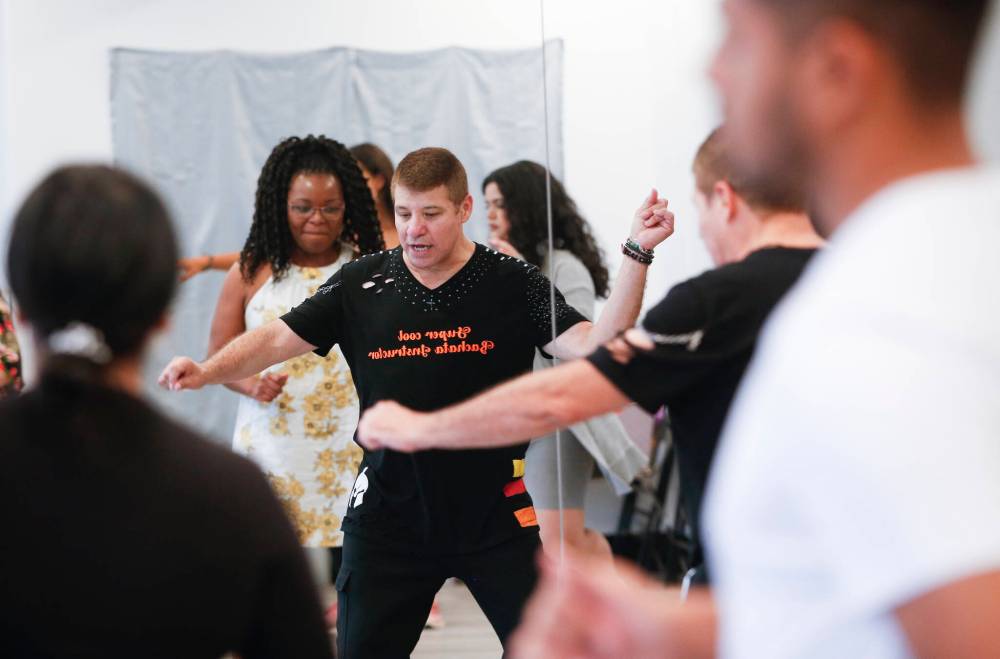
This fall, Leo will travel to Mexico City to visit his mother for the first time since the start of the pandemic, a major development for a person who can’t recall the last time he called in sick — “who would I even call?” he says with a chuckle — and can hardly spell the word vacation.
“I used to have the fear, ‘who’s going to run things if I’m not around?’ But with Ana Karen here, I no longer think that way,” he says. “As a parent, you feel pride in everything your children do but with her, it goes beyond that. I started the business, yes, but I truly believe she has become far better than me. And because of that, I know the school is in good hands, for many years to come.”
david.sanderson@freepress.mb.ca
Dave Sanderson was born in Regina but please, don’t hold that against him.
Our newsroom depends on a growing audience of readers to power our journalism. If you are not a paid reader, please consider becoming a subscriber.
Our newsroom depends on its audience of readers to power our journalism. Thank you for your support.


